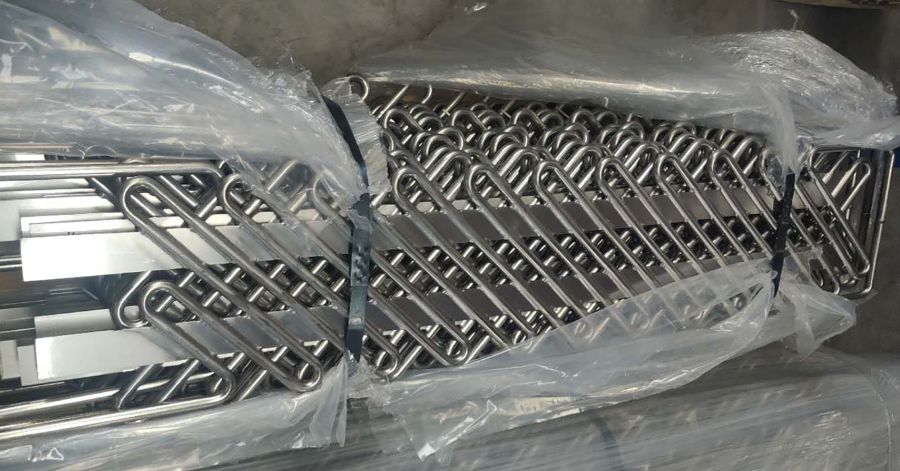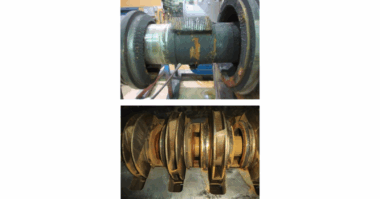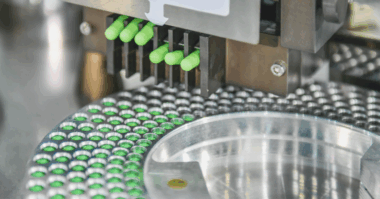Sulzer’s SMR cuts production times at processing plant
Shortening the time required to heat adhesives in tape manufacturing without compromising their physicochemical properties is one of the most crucial goals for businesses in this sector. When a leading adhesive tape manufacturer needed an innovative heat exchanger to support and improve its operations, it found the ideal solution in Sulzer’s heat and mass transfer technology. The company’s heat exchanger effectively reduced time-to-heat periods, speeding up the entire production line while delivering high-quality materials.
Adhesive tape manufacturing relies heavily on heat exchangers. In these machines, resin-based adhesives are heated to reach a suitable consistency at which they can be applied onto tapes as coatings. Heating such highly viscous materials requires a delicate balance between reaching the desired temperature in the fastest way and maintaining the optimal physicochemical properties of the substance. Every minute of heating time lengthens production cycles, increases energy consumption and contributes to higher process costs – but increasing the temperature of the adhesive too quickly can result in irreparable thermal degradation.
In the case of a leading European adhesive tape producer located in Spain, the company saw the potential to make its manufacturing more efficient by optimizing its heating operations. To find a suitable solution, the company started to proactively look at state-of-the-art heat exchangers to replace its existing system together with process specialist Caperva, which collaborates with Sulzer and acts as an agent in Spain. As a result of this research, it identified Sulzer’s Static Mixer Reactor (SMR) as a far more effective alternative to its conventional heat exchanger. The tape producer was convinced by the SMR’s large surface area, which would facilitate the heat transfer process while homogenizing the temperature of the adhesives.

In Sulzer’s Static Mixer Reactor (SMR), the adhesive passes through the unit’s shell while the heat transfer medium flows inside a fixed tube geometry that provides a static mixing effect for uniform and efficient heating and mixing.
The technology developed by Sulzer features a revolutionary design. Contrary to conventional multi-tube heat exchangers, the product to be heated passes through the SMR’s shell while the heat transfer medium flows inside a fixed tube geometry. This is made up of bent and folded tubes providing a static mixing effect.
The presence of a single, large channel for the liquid product maximizes the surface area per unit of volume, leading to an optimized product distribution. Furthermore, as the product is not split into separate flows within the various tubes, the different laminar flow layers are continuously transposed. In this way, it is possible to achieve an efficient and uniform mixing of the entire stream.
Creating a custom design
The Spanish adhesive tape manufacturer and Sulzer had already successfully collaborated in the past. When the producer wanted to ease processing challenges associated with mixing and blending colors, Sulzer had provided a static mixer that addressed these issues and offered high-quality color blends. Based on the positive collaboration, the adhesive tape producer enlisted the company’s help.
In order to provide a customized SMR design, Sulzer’s specialized engineers began to look at the specific process requirements. To do so, they conducted an extensive investigation on throughput, the availability and type of heating media as well as differences in adhesive temperature and viscosity at input and output to determine a realistic heating profile.
The adhesive to be processed was calculated to have an average density, specific heat capacity and thermal conductivity of 730 kg/m3, 2’400 J/kg K and 0.15 W/m K respectively. The SMR would use water as the heat transfer medium to increase the temperature of the material from 20°C to 45°C, entering the equipment at a flowrate of 3’200 kg/h and viscosity of 200 Pa·s. Modifying the temperature of such a viscous substance is particularly challenging for conventional heat exchangers, while the innovative structure of the SMR can effectively support these demanding applications.
This data and other key parameters, such as pressure drops, were key for Sulzer’s team to define the ideal length and diameter of the SMR. For example, large diameters generally reduce pressure drop differences. The manufacturer was also able to provide large volumes of highly accurate existing process data. This enabled Sulzer to conduct simulations that would closely match the real-world application.
Highly effective when the heat is on
As a result of these studies, Sulzer’s engineers concluded that the SMR would need to be particularly large, at 3.2 m in length and with an exchanger surface area of 20.7 m2, to support the high throughput and temperature difference expected within the application. The modelling conducted by Sulzer’s engineers, supported by data from the producer, was able to accurately predict how resins and adhesives would react during the process.
After successful testing and installation, the SMR is now fully operational and has enabled the adhesive tape manufacturer to reach its process intensification goals. Even more, the solution exceeded initial expectations, allowing the manufacturer to reach 48°C with its hot melt, rather than 45°C.
Finally, as the SMR has no moving parts and the mixing effect is gentle, without any shear force, the system can be used to manage solvents such as hexane, which is utilized by the adhesive tape manufacturer.
José Corbacho, Sales Manager at Sulzer’s Agent in Spain, Caperva, comments: “The customer is very happy with the SMR. The project has been a great success and has allowed them to optimize their production process and reduce maintenance activities. At the same time, the resource efficiency of their manufacturing has been improved by reducing the volume of waste generated. Looking at the positive results of this project, Sulzer is planning to further support the growth of this customer by installing two more SMRs that will further increase their yield.”
About Sulzer
Sulzer is a global leader in fluid engineering. We specialize in pumping, agitation, mixing, separation and application technologies for fluids of all types. Our customers benefit from our commitment to innovation, performance and quality and from our responsive network of 180 world-class manufacturing facilities and service centers across the globe. Sulzer has been headquartered in Winterthur, Switzerland, since 1834. In 2019, our 16’500 employees delivered revenues of CHF 3.7 billion. Our shares are traded on the SIX Swiss Exchange (SIX: SUN).
The Chemtech division is the global market leader in innovative mass transfer, static mixing and polymer solutions for petrochemicals, refining, LNG, biopolymers and biofuels. Our product offering ranges from process components to complete separation process plants, including licensing. Customer support covers engineering services and field services to tray and packing installation, tower maintenance, welding and plant turnaround projects.




